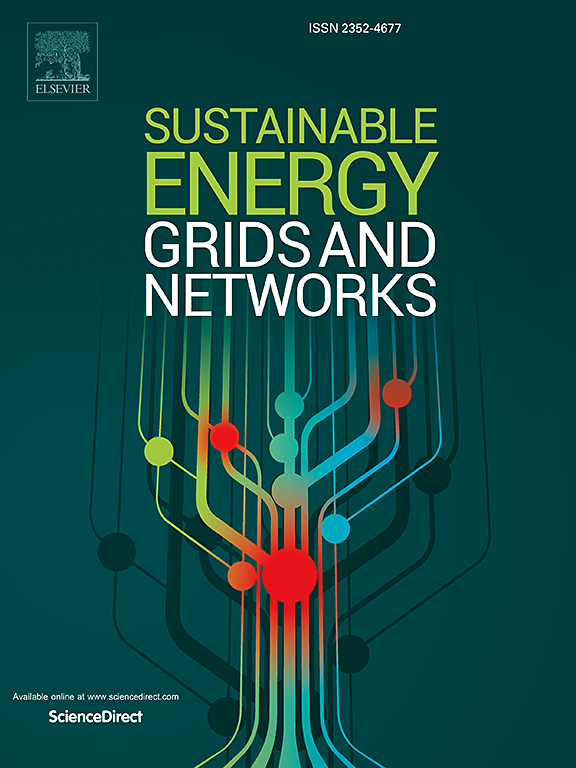处理能源社区中的矛盾目标:一种面向游戏的三级方法
IF 4.8
2区 工程技术
Q2 ENERGY & FUELS
引用次数: 0
摘要
能源社区使最终用户能够积极参与系统的运行,同时通过优化资源共享降低能源采购。能源社区的主要目标是通过最大限度地利用光伏和存储系统等当地资产来减少集体账单。然而,不同的社区成员可能会提出特定的目标,最终可能与降低电力成本相矛盾。例如,生产消费者可能有兴趣在基准点之上增加他们的消费,以增加他们的舒适度和满意度。在社区能源管理中应考虑到这些相互矛盾的目标,以确保其社会的稳定和成功。为此,提出了一种新的基于博弈的合作社区三层日前方法,其中两个次要目标可以与成本最小化的原始目标相适应。作为一个例子,本文中开发的工具适合于生产消费者的目标是最大化他们的消费,而存储假装最小化资产退化的情况。将原来的三层结构简化为提供纳什意义上平衡点的可解单层问题。为了验证新方法,在5总线和15总线的情况下提供了许多结果。结果表明,新方案可以在多种场景下轻松实现,表现出与案例无关的性能。通过分析不同用户偏好下的社区总成本,说明并验证了分层决策逻辑过程。最后,研究表明,所开发的方法可以很好地适应存储能力和社区规模。本文章由计算机程序翻译,如有差异,请以英文原文为准。
Dealing with contradictory objectives in energy communities: A game-oriented trilevel approach
Energy communities empower end users to partake actively in the operation of the system while lowering energy procurement through optimal sharing resources. The main objective of energy communities is reducing the collective bill by maximizing the usage of local assets such as photovoltaic and storage systems. However, the different community members may raise particular objectives that may eventually lie in contradiction with the reduction of the electricity cost. For example, prosumers may be interested in incrementing their consumption above a benchmark point in order to increase their comfort and satisfaction. Such contradictory objectives should be considered in energy management of communities in order to ensure its social stability and successful. To this end, a novel game-based trilevel day-ahead approach for cooperative communities is developed, in which two secondary objectives can be accommodated together with the cost minimization original target. As a sake of example, the developed tool tailors in this paper to the case in which prosumers aim at maximizing their consumption while storage pretend to minimize the degradation of assets. The original trilevel structure is reduced to a solvable single-level problem that provide an equilibrium point in the Nash sense. A number of results is provided in 5 and 15-bus cases in order to validate the new approach. Results show that the new proposal can be easily implemented in a variety of scenarios, showing a case-independent performance. The hierarchical decision-logic procedure has been illustrated and validated analysing the total community cost under different users’ preferences. Finally, it is shown that the developed methodology scales well with the storage capability and community size.
求助全文
通过发布文献求助,成功后即可免费获取论文全文。
去求助
来源期刊

Sustainable Energy Grids & Networks
Energy-Energy Engineering and Power Technology
CiteScore
7.90
自引率
13.00%
发文量
206
审稿时长
49 days
期刊介绍:
Sustainable Energy, Grids and Networks (SEGAN)is an international peer-reviewed publication for theoretical and applied research dealing with energy, information grids and power networks, including smart grids from super to micro grid scales. SEGAN welcomes papers describing fundamental advances in mathematical, statistical or computational methods with application to power and energy systems, as well as papers on applications, computation and modeling in the areas of electrical and energy systems with coupled information and communication technologies.
 求助内容:
求助内容: 应助结果提醒方式:
应助结果提醒方式:


